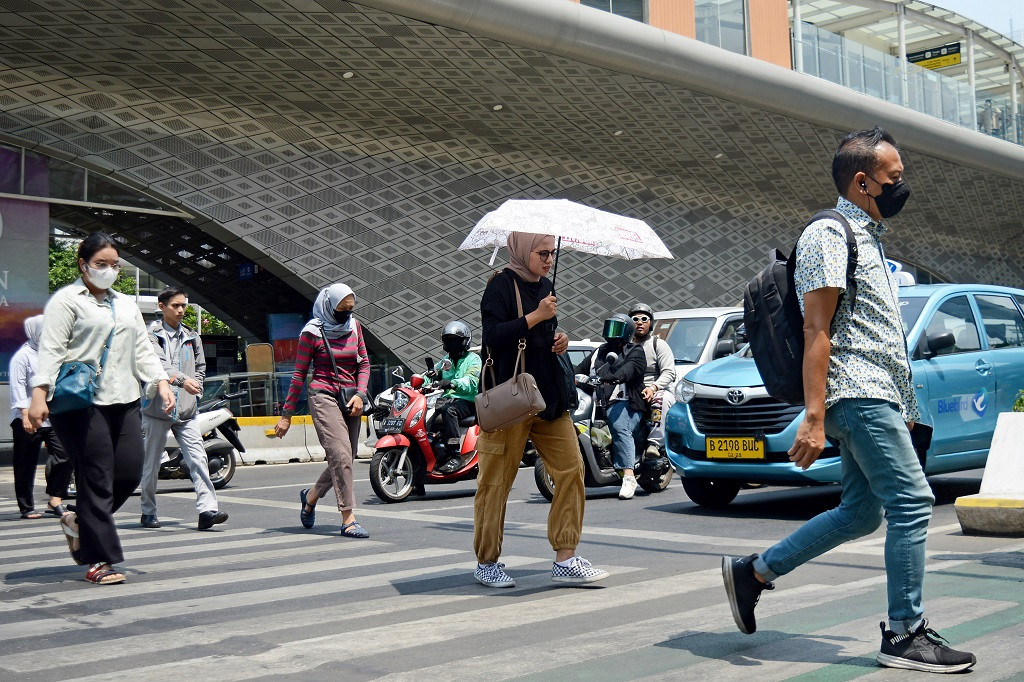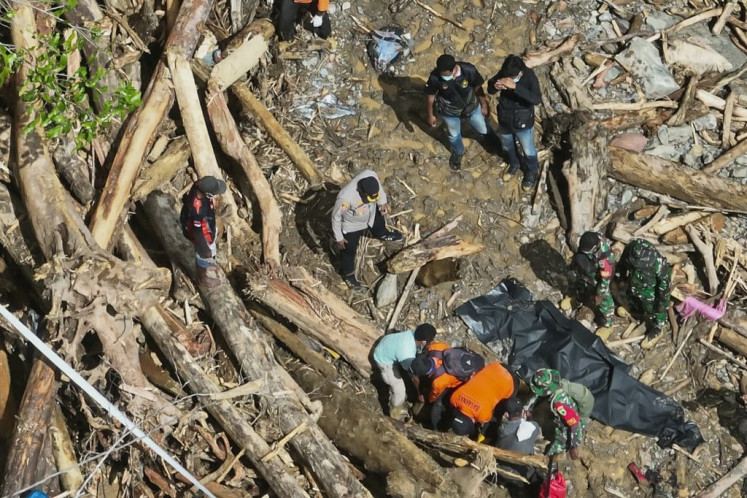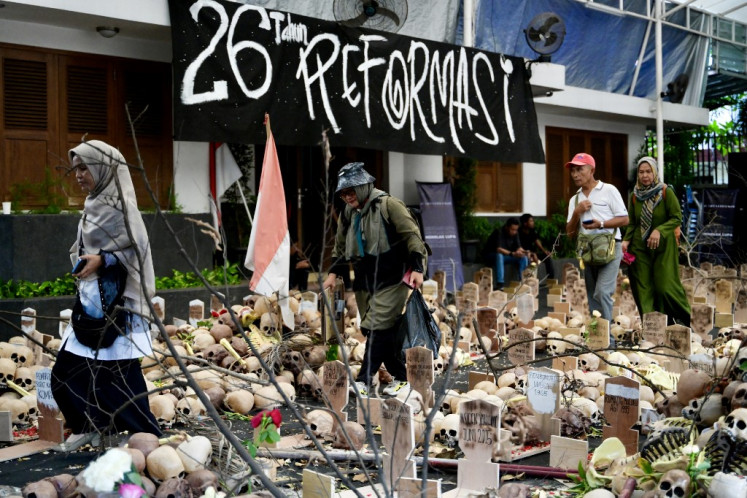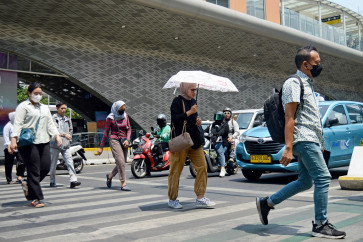Popular Reads
Top Results
Can't find what you're looking for?
View all search resultsPopular Reads
Top Results
Can't find what you're looking for?
View all search resultsLack of cooling put poor at higher risk in hotter Jakarta
While Jakarta has several parks and open spaces, the quantity and distribution of these areas are limited, making them largely inaccessible to the city's low-income households, according to a recent study.
Change text size
Gift Premium Articles
to Anyone
I
f you feel like Jakarta has been heating up lately, it is not only because of politics, but also from the prolonged dry season trapping heat among the city’s buildings.
One of the worst parts of the increasing urban heat is that low-income people often suffer the most from its effects, a recent study has found.
The temperature in Jakarta in the past week has hovered between 30 and 36 degrees Celsius, according to the data from the Meteorology, Climatology and Geophysics Agency (BMKG). This has sparked complaints from social media users about the unbearable heat and humidity.
What these people were experiencing could be attributed to a phenomenon called the urban heat island effect, in which human-made structures like buildings and roads absorb and reemit heat and pollution more than natural landscape features such as forests and bodies of water.
The heat and the pollution are trapped in highly concentrated areas with limited green spaces, even at night, creating “heat islands” with higher temperatures than surrounding areas.
The study, published earlier this month in the Frontiers in Human Dynamics journal, found that low-income neighborhoods in Jakarta, which tend to be extremely dense, had become heat islands that disproportionately affect people living and working in them because of the lack of access to cooling devices.
“Based on our interviews for the study, informal workers tended to cool themselves by sitting on a house or shop terrace or coming to the nearest park,” said Rifda Ufaira, urban planning researcher at the Bandung Institute of Technology (ITB) and lead author of the study. She also highlighted that these people rarely have access to personal cooling devices such as air conditioners and fans.



















